
Recovery from an endoscopy will take a while, although not as long as abdominal surgery. Its duration depends on the type of operation (diagnosis or treatment), the type of procedure (which organs have been examined), the occurrence of complications and can take 2-4 weeks. During this period, a series of different events do not end in a person's life, including events related to the reason for drinking. Therefore, patients often find out when to drink alcohol after laparoscopy.
Attitude to alcohol during recovery from laparoscopy
| Laparoscopic Surgery Type | Important adaptive features regarding alcohol consumption |
| Gynecological procedures | During the post-laparoscopic adaptation period, a woman faces nausea and bloating. When pain begins, the doctor prescribes the use of nonsteroidal anti-inflammatory drugs, and if the focus is suspected of infection, then antibiotics can be used. After endoscopy, a woman needs to take hormonal drugs to correct the endocrine background. Therefore, alcoholic beverages are not allowed to be used sooner after a month and a half, since the drugs are completely incompatible with even small doses of alcohol. |
| Appendectomy | Alcoholic beverages are prohibited after laparoscopic appendectomy, as they are very damaging to the liver, threatening the development of cirrhosis. In addition, ethanol causes inflammation of the mucous membranes of all digestive organs. Due to the risk of bloating and the appearance of gas, even the use of beer is prohibited, as the drink is a fermented product, albeit natural. The result of increased gas formation may be the dissipation seams, after how long you can taste the alcohol, the attending physician decides in each case. |
| Gallbladder removal | After laparoscopic cholecystectomy, the patient has to make significant adjustments not only to diet but also to overall lifestyle. The body needs help to adapt to special operating conditions, and taking certain medications can be lifelong. So, after the intervention, not only alcohol is not allowed, it is definitely contraindicated, because the organ responsible for alcohol decomposition was cut off. If not all the doctor's requirements are met, a favorable result is in place |
In order to successfully regain function after any type of endoscopy, it is important to follow simple rules for the body to fully recover. Even with a complete refusal of alcohol, life does not end, but acquires a new meaning, and the colors of reality become brighter.
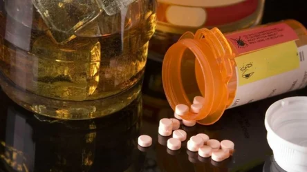
Timing to reduce risks from using ethanol
Drinking alcohol after surgery is undesirable. It is considered as follows:
- Abdominal Surgery
- minimum first dose may be taken one month later;
- extraction - after 2-3 days; Appendectomy
- (for purulent appendicitis) - after 2-3 weeks;
- gynecological surgery (for fibroids or ectopic pregnancy) - after 4 weeks.
- cosmetic and cosmetic surgery - after 3 weeks.
The time factor is influenced by the patient's age and physical condition. If the average abstinence time when appendectomy is 2-3 weeks, in young people 25-30 years it can be 10-14 days, in people over 35 years old is 1, 5-2 months.
If you can't help but drink alcohol, it's best to consult your doctor about an approximate "safe" diet period. This mainly applies to the above operations:
- spine
- for removal of herniated disc, as well as coccyx trauma; rectal
- (for hemorrhoids); thyroid gland
- ;
- joints of the extremities;
- prostate (cancer or adenoma);
- testicles (varicose vein surgery);
- the knee area (above the knee joint);
- venous leg veins (for varicose veins).
Wine of different effects
Unfortunately, not everyone will follow the advice of tattooists. Consequently, many types of consequences often arise. No harmless alcohol. Some people may be thinking - what if I drink a bottle of beer or a glass of vodka? Let's see how alcoholic beverages affect the body after tattooing specifically.
Fans of cognac and whiskey should turn down these drinks for a few weeks after doing the trick. The fact is that they will have a direct effect on the blood vessels, enlarging them. As a result, the picture can become much blurred, about half as much. Damaged skin takes longer to heal and the wound may bleed.
Drinking vodka after a tattoo can cause the drawing to be distorted and blurred. The paint was washed away very strongly. For seemingly harmless beer, you'll have to limit your intake as well. Foamy beverages contribute to a slight increase in blood pressure, which will affect the lymph, more precisely the amount it produces.
Important! After drinking alcoholic beverages, rough flakes will appear on the skin for a few days after the tattoo. As a result, scars, scars or swelling may appear, which will not go away even after the skin has healed.
Alcohol and anesthetics
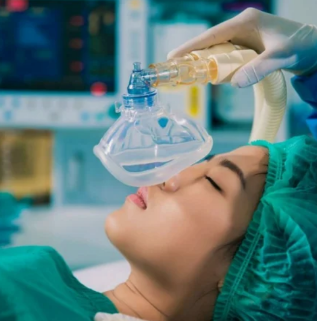
Anesthesia - loss of sensitivity of the tissue for a short time under the influence of anesthetics. Such drugs block the transmission of nerve impulses, so the signals do not reach the brain, which means that the body's response to stimuli in the form of pain is absent.
Local anesthesia lasts for another 2, 5 hours after surgery. However, when drinking alcohol, the anesthetic effect of the drug disappears immediately, acute pain flares up, unable to choke even with anesthetic.
The situation is much more complicated with general anesthesia used in abdominal surgery, where the body needs to be protected from shock and pain.
After recovering from anesthesia, the following complications are possible:
- headache;
- nausea;
- muscle weakness or strain;
- discomfort in the throat;
- the crust of consciousness;
- hypotension;
- delirium causes hallucinations.
Why can't you drink alcohol after anesthesia?
This combination can lead to serious conditions such as anaphylaxis and neurosis. The length of time to quit anesthesia depends on the type of drug, dosage and the patient's health. As a rule, the main part will leave the body within one day after surgery, and the rest within 2-3 days.

What could be the consequences
Not all antibiotics are created equal: some are lighter and some are stronger. Here are the groups of drugs that must be taken according to the prescription of the doctor, not including any health experiments:
- chloramphenicol;
- tetracyclin;
- nitroimidazole;
- macrolide;
- cephalosporin;
- lincosamide;
- aminoglycoside.
Serious health problems cannot be avoided if restrictions are ignored. Opposite person:
- heart attack;
- stroke; allergic reaction
- ;
- tissue deterioration may turn into gangrene.
The drug Biseptol has an effect similar to disulfiram (it's used to encode alcoholism). If mixed with alcohol, the patient's temperature increases, the heart palpitations occur, accompanied by intense vomiting, headache. From the constriction of blood vessels in the brain, bleeding can occur. As a result - a heart attack, coma or death.
Rules for drinking after cholecystectomy
If a person does not feel unwell at first, this does not mean that drinking is allowed. Especially in this case, it is dangerous to systematically drink intoxicated beverages. In many patients with cholecystectomy, the body reacts spontaneously to alcohol with vomiting or severe pain. This is because the digestive organs, after being active, begin to function in extreme conditions.
itself, cholecystectomy forces many patients to reconsider their diet and give up bad habits. Only in this case is it possible to be in remission for a long time and it is possible to live without constant pain in the hypotenuse.
After removing the gallbladder, it is best to completely forget the alcohol of any kind and amount. And there are many patients who find ways to completely eliminate alcohol from their lives. However, not everyone can completely quit drinking - after all, most traditions of Slavic culture are tied to the compulsory consumption of strong drinks.
So it is important to know what are the basic rules for drinking alcohol after gallbladder removal, what can you drink in a similar situation and in what quantity. Restrictions like:
could become a compromise between the title of "white crow" and the harm to one's own health.Typically, cholecystectomy is associated with the development of chronic inflammatory processes in the biliary tract or liver. With such diseases, the absence of the gallbladder is no reason to relax and begin to absorb everything. In addition to alcohol, patients at least 2-3 years old are prohibited from eating fatty, fried, smoked and spicy foods. This stage after cholecystectomy is considered reversible and is associated with special limitations for the patient.
Gallbladder removal is done very often, and after such an operation it is possible to live a full life. However, such an intervention requires a person to monitor their health more carefully, adhere to a diet, and eliminate as much alcohol from life as possible.
Only in the case of a moderate lifestyle and refusal of addictions can a patient be in remission with good health. The restriction or elimination of alcohol does not prevent many people from living by pleasures, looking for good reasons to enjoy.
Don't drink how much alcohol
Ethanol dilates blood vessels and increases blood circulation, which is very dangerous when there are open wounds in the mouth. Drinking can cause severe bleeding that makes it difficult to stop bleeding.
After removal, a blood clot forms in the wound, helping to protect the wound from infection. As the bleeding becomes more, it can be washed away, then inflammation cannot be avoided. As a result - convulsive pain, swelling, quenching, fever. You will have to go to the dentist for a checkup, remove pus, open your gums, and take antibiotics.
In addition, ethanol can cause an allergic reaction to pain relievers. No one would have predicted that, because each organism reacts to the pain suppressant in its own way. Common manifestations: skin rash, itching, swelling, difficulty breathing. You may even have anaphylaxis.
The length of time where strong drinks are banned is set aside. Before starting to drink, the patient must be sure that the wound has healed and no longer bleeding in case of accidental mechanical damage. The gums are healthy, not swollen, and painful when pressed. There is no fishy taste in the mouth.
Also, you need to wait until the anesthetic is removed from the blood. This process lasts from one day to several days: the time depends on the dose injected, the individual metabolic rate and the type of anesthetic drug. As a rule, by the third night, the trace of the drug in the blood disappeared.
Extraction is a relatively harmless operation, but even after it has been done, some restrictions must be followed, especially if your doctor uses anesthetic. Be careful when you drink alcohol - even a small amount can have serious consequences.
The effects of alcohol on blood circulation
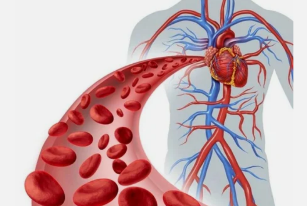
Sometimes, surgery not only damages soft tissues, but also the blood vessels that feed certain parts of the body. With a favorable result, they are restored, so no organs are deprived of oxygen and excess carbon dioxide.
Surgeons note that such results are possible only if all recommendations for recovery time are strictly followed. In particular, circulation problems can occur if a person disobeys a doctor's advice and drinks alcohol. Alcohol negatively affects the state of the vascular bed.
It is believed that small amounts of alcohol have a helpful effect on blood circulation, but this only applies to perfectly healthy people. After the surgery, the situation was different.
Even small amounts of any strong drink can be harmful. Doctors explain this because under the action of ethyl alcohol, smooth muscle tissue is strongly constricted. In other words, the artery and vein walls go into a state of hypertonia. Their lumen narrows, and the rate at which blood flows through them decreases.
As a result, the patient's blood pressure drops and the oxygen supply to the tissues and organs is impaired. This means that postoperative healing will be slower and rehabilitation time indefinitely.
The dangers of alcohol before surgery
The presence of ethanol in the body is not acceptable not only after surgery but also during its preparation. Even surgery would be performed using modern laparoscopic surgical methods, which do not require standard cavity incisions. Drinking alcohol before surgery contributes to disorders of the cardiovascular system, threatening heart failure with the possibility of death.
In some cases, alcohol in the blood can cause problems with the effects of the anesthetic, the duration of action of the anesthetic is short, without relieving the pain. Patients sometimes ask if it is possible to drink beer or other carbonated drinks before abdominal intervention. Such drinks before surgery contribute to irritation of the gastric mucosa with carbon dioxide, and in combination with ethanol and anesthetics, leading to gastrointestinal bleeding.
Even small doses of alcohol taken before an anesthetic can be very difficult to recover from anesthesia. Due to the severe hangover symptoms, doctors would have to bring the operated person back to consciousness, fight the delirium and withdraw from anaphylaxis. Therefore, doctors warn that after the colonoscopy, you should only drink clean water that does not contain carbon dioxide, and even more - alcohol. Especially after laparoscopic surgery to remove the ovarian cyst, when a woman can prescribe antibiotics to protect from the possible development of inflammation.
Post-operative complications

According to medical statistics, the risk of complications in patients who drink alcohol before or after surgery is much higher. Ethyl alcohol and anesthetics are completely incompatible. Anesthesia is the temporary loss of tissue sensitivity under the action of a medical anesthetic. Their main job is to prevent transmission of nerve impulses. As a result, the signals don't reach the brain so the patient feels no pain.
The effects of the anesthesia after surgery last for another 2-3 hours. If you drink a little alcohol after surgery, the effects of the pain relievers will disappear immediately.A similar reaction can occur if you drink alcohol before surgery.
In this case, further anesthesia will not yield the desired results.
Any surgical intervention on the body is stressful. Drinking alcohol after surgery can cause serious problems. Potential complications include:
- headache;
- the crust of consciousness;
- nausea;
- reduces blood pressure.
Ethyl alcohol has an adverse effect on blood clotting. It makes it too thick. The epidermal cells in the blood stick together and form blood clots that block blood vessels and small capillaries. Drinking alcohol after surgery can cause stroke, heart attack, or bleeding.
Many alcoholics go to bed with a disappointing diagnosis requiring surgery, asking themselves: "When can you drink alcohol after surgery? " If anyone doesn't know when. This is especially true during illness, including the pre- and post-operative period. Today we will go into more detail on this topic and learn about the physiology of ethyl alcohol effect on the body, who has just had surgery.
After surgery
After surgery, the patient's body needs a long-term high-quality recovery. For this, an important list of drugs is often indicated to facilitate the process. Binge drinking violently interferes with recovery, having direct negative effects on the body, immune system and drug interactions.
Since alcohol thickens the blood, post-operative alcohol use is dangerous - it affects the veins, leading to serious consequences in the form of a thrombosis of the veins that have not yet recovered from the intervention ofoperated doctor. Depending on the concentration of alcohol, both the smallest and the larger capillaries can overlap, significantly slowing down the circulation and recovery of blood.
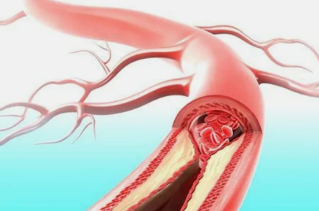
The liver and kidneys of alcoholics have serious problems at work, often complicated by cirrhosis and other chronic illnesses. In the postoperative period, the body has to bear a considerable load to remove the breakdown products of potent drugs. Alcohol significantly increases the risk of supplementation.
The combination of alcohol and drugs in the postoperative period leads to a delay in the elimination of toxins from the body. The negative symptoms of this association are manifested as follows:
- arrhythmia;
- difficulty breathing;
- increased sweating;
- dizziness;
- reduces blood pressure;
- blood rushes to the head.
Usually, to protect from complications after surgery, strong antibiotics are prescribed, which are absolutely incompatible with any alcoholic product. Alcohol has a general anesthetic effect that has a depressing effect on the central nervous system, often leading to paranoia, hallucinations, and other harmful manifestations.
Rehabilitation alcohol
Like any other surgical procedure, drinking any alcohol is especially dangerous after a colonoscopy. This is especially true in the field of obstetrics and gynecology. Because after performing laparoscopic surgical operations involving the appearance of pain and inflammation after surgery, certain drugs are often prescribed. Oral pain relievers and antibacterial agents are incompatible with alcohol, it is strictly forbidden to use.
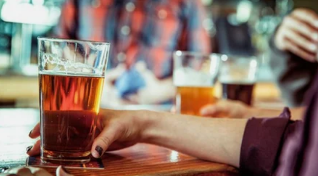
Reasons for banning alcoholic beverages after laparoscopy:
- instead of restoring immunity, the body will have to use energy to get rid of the alcoholic toxin;
- when treating ovarian cysts with endoscopic method, if a woman drinks a little beer before surgery, this threatens inflammatory complications;
- drinking alcoholic beverages with nonsteroidal anti-inflammatory drugs leads to death of liver cells;
- drinking alcohol after anesthesia slows down the regeneration process and leads to exacerbation of underlying diseases and chronic problems;
- causes vasodilation, alcohol after anesthesia threatens internal bleeding, hemorrhage, possibly myocardial infarction or stroke; Alcohol
- strongly thickens blood, clogging small capillaries with coagulating red blood cells, leading to the appearance of blood clots;
- the use of alcoholic beverages depresses the nervous system, causing confusion, delusions, hallucinations.
Antibiotic rules
The most important rule of thumb for taking antibiotics is to use them only in situations where you wouldn't be able to do without them. Indications for use are symptoms of an acute bacterial infection with which the body is unable to cope on its own. To get the desired therapeutic effect, the use of antibiotics cannot be indiscriminate.
You are required to follow the instructions below:
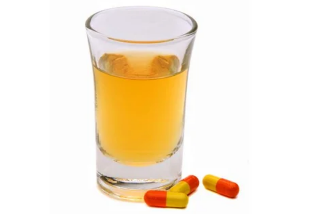
- You cannot prescribe an antibiotic by yourselfif you have no medical knowledge. Only a doctor can determine the cause of the disease - viral or bacterial. With viral infections, antibiotics do not help, on the contrary, they can aggravate the course of the disease;
- Do not stop the prescribed treatment if you feel better.A relapse may occur;
- Do not change your antibiotic dosage during treatment. The dose reduction threatens that bacteria will develop resistance to the drug and this increase will lead to side effects or overdose;
- Do not take antibiotics with tea, juice, especially milk, otherwise the medicine will lose its effect. Milk, milk and fermented dairy products are incompatible with antibiotics, they impair the effectiveness of the drug. You can take the pill only with water, about 0, 5-1 cups;
- Don't take antibiotics at any convenient time.It is important to follow the directions for taking the medicine and taking the medicine as described, namely: before, during, or after a meal. In addition, it is necessary to observe the frequency of drug administration (1 time after 24 hours, 2 times after 12 hours, 3 times after 8 hours, etc. ) to create the desired antibiotic concentration in the body;
- Do not combine antibiotics with physical activity;
- Do not drink alcohol during the entire course of antibiotics.
Before prescribing an antibiotic you must inform your doctor of the following:
- drug is currently in use;
- pregnant or lactating;
- kidney or liver disease;
- diabetes mellitus.
And if observed before:
- occurs side effects;
- develops allergic reactions;
- uses antibacterial agents recently.


























